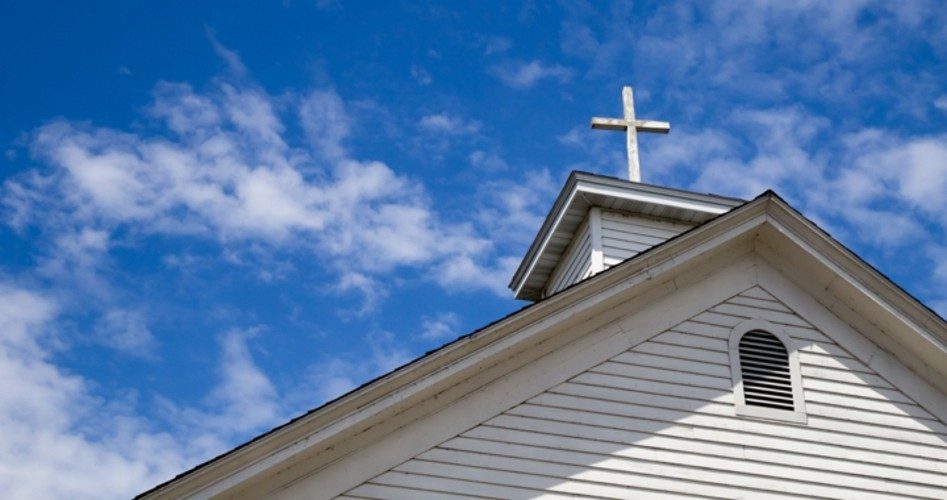
While President Trump’s approval rating hovers at an anemic 39 percent among Americans overall, those who identify as church-going Christians continue to stand solidly behind the president, according to the latest survey from the Pew Research Center.
Released on June 20, the Pew poll found that among Americans who attend church weekly or more, 48 percent approve of President Trump and his administration. For Caucasian/non-Hispanic evangelical Protestants, Trump’s approval rating soars to 74 percent, with Caucasian/non-Hispanic Catholics supporting the president by 52 percent. Among Catholics overall, Trump’s approval rating drops to 38 percent and 56 percent, with the negativity coming largely from Hispanics — a demographic that has been at odds with Trump since early in his campaign.
Commenting on the latest Pew results, Bill Donohue of the Catholic League said that “with regard to the role of religion, two conclusions seem plain: one, “religious Americans like the president,” and two, “secularists don’t like him.”
As for President Trump’s approval among Catholics overall, the Jesuit-sponsored AmericaMagazine.org noted that from the beginning of his administration, “Catholic leaders in the United States have walked a fine line when it comes to engaging the White House. In the first few weeks after Mr. Trump’s inauguration, the U.S. Conference of Catholic Bishops (USCCB) released a flurry of statements condemning proposals related to immigration, health care, and the environment.” And at a major meeting in Mid-June, “many bishops made public condemnations of Mr. Trump’s efforts to repeal the Affordable Care Act and pledged to renew their fight to resist what they say are inhumane immigration policies.”
However, added the Jesuit website, at least two prominent archbishops, Cardinal Donald Wuerl of Washington and Cardinal Daniel DiNardo, head of the USCCB, were on hand at the White House in May for President Trump’s signing of an executive order on religious liberty. And in early June, recounted the Jesuit website, “Vice President Mike Pence received a friendly welcome at the National Catholic Prayer Breakfast, where he said the administration plans to support persecuted Christians in the Middle East.”
And in a recent letter on behalf of U.S. bishops to Pope Francis, Cardinal DiNardo recalled the Pope’s meeting with Trump, calling it a “powerful encounter.” DiNardo added that U.S. bishops pray that “the seeds sown on the common ground of life and religious freedom will bear much fruit.”
Observers note that Trump’s consistent support from religious Americans, especially evangelicals, stems largely from their perception that he is committed to delivering on a number of key campaign promises, including appointing conservative Supreme Court justices who would, among other things, work to overturn Roe v. Wade. CNN noted that the confirmation of Neil Gorsuch to the High Court “cemented a conservative majority on the bench, something many evangelical voters were hoping for when they backed Trump.”
Additionally, days after taking office Trump signed an executive order reinstating the so-called Mexico City policy, which bans funding from international non-governmental organizations that perform or promote abortions. And in April the president signed a bill empowering states to withhold federal money from organizations like Planned Parenthood that perform abortions.
CNN noted that while Trump delivered a strong campaign message focused on protecting religious liberty, some religious Americans may be growing impatient on his delivery of that promise. A recent letter from more than 50 Republican congressmen urged Trump “to take ‘prompt executive action’ to allow churches a freer hand in political activism while retaining their tax-exempt status,” reported CNN.
The congressmen went on to point out to the president that on many occasions during the campaign, “you reiterated your support for restoring the free speech rights of charities and churches threatened by the unconstitutional nature of the Johnson Amendment” — the longtime IRS measure barring religious organizations from endorsing political candidates. “The recent revelations of IRS targeting of conservative groups along with regularly issued demand letters sent to churches by outside entities, has created a chilling effect on pastors from merely mentioning political events.”
Added the lawmakers: “Executive and legislative action is also needed to protect religious liberty in light of the Supreme Court’s recent redefinition of marriage” — an action that could ultimately place pastors and churches in jeopardy if they refuse to perform ceremonies for same-sex couples.
Photo: Thinkstock



